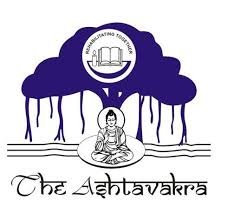Bachelor of Physiotherapy [BPT]
4.5 years duration, which includes 6 months of compulsory internship in the final year.
BPT Course Details at Ashtavakra Institute of Rehabilitation Sciences & Research
-
Degree Offered:
- BPT (Bachelor of Physiotherapy), an undergraduate degree program.
-
Duration:
- The BPT program is of 4.5 years duration, which includes 6 months of compulsory internship in the final year.
-
Eligibility Criteria:
- Educational Qualification:
- Candidates must have completed 12th grade (or equivalent) with Physics, Chemistry, and Biology as core subjects from a recognized board.
- A minimum aggregate of 50% marks (for general category students) or as per the guidelines specified by the institute or university.
- Age Limit: The minimum age for admission is typically 17 years at the time of admission.
- Entrance Exam: Admission may be based on an entrance exam conducted by the institute or a national-level exam, followed by an interview or counseling session.
- Educational Qualification:
-
Admission Process:
- Entrance Exam: The institute may conduct an entrance exam for BPT admission, or they may consider merit-based admission depending on the overall academic performance of the candidate in the 12th-grade exams.
- Personal Interview/Counseling: Candidates may be required to attend a personal interview or counseling session as part of the selection process.
-
Course Curriculum: The BPT course at Ashtavakra Institute of Rehabilitation Sciences & Research offers a comprehensive curriculum that focuses on anatomy, physiology, rehabilitation techniques, and clinical practices. The typical structure is as follows:
- Year 1:
- Anatomy
- Physiology
- Biomechanics
- Medical Terminology
- Psychology
- Introduction to Physiotherapy
- English Communication
- Year 2:
- Kinesiology
- Electrotherapy
- Exercise Therapy
- Pathology
- Orthopedic Physiotherapy
- Microbiology and Pharmacology
- Year 3:
- Neurological Physiotherapy
- Musculoskeletal Physiotherapy
- Cardiopulmonary Physiotherapy
- Pediatric Physiotherapy
- Geriatric Physiotherapy
- Community Physiotherapy
- Year 4:
- Advanced Physiotherapy Techniques
- Physiotherapy in Sports
- Professional Ethics and Legal Aspects
- Research Methodology
- Physiotherapy in Rehabilitation of Complex Disorders
- Internship (6 months): In the final year, students undertake a compulsory internship in hospitals, rehabilitation centers, or physiotherapy clinics to gain practical, hands-on experience under the supervision of experienced physiotherapists.
Note: The exact curriculum might vary slightly depending on the institution, but the overall structure will include subjects related to human anatomy, physiology, various physiotherapy techniques, and clinical internships.
- Year 1:
-
Fee Structure:
- The fee for the BPT program at Ashtavakra Institute of Rehabilitation Sciences & Research can vary based on the institute’s location, infrastructure, and facilities. On average, the fees can range from ₹50,000 to ₹1,00,000 per year. It is best to contact the institute directly to get accurate and updated fee details.
-
Infrastructure and Facilities:
- Classrooms: Well-equipped classrooms designed for theoretical and practical learning.
- Physiotherapy Labs: The institute will have specialized physiotherapy labs that focus on electrotherapy, exercise therapy, musculoskeletal therapy, and other treatment techniques.
- Clinical Internship: The internship is a key component, offering real-time exposure to patients and their rehabilitation needs.
- Library: The library will be stocked with textbooks, journals, and online resources related to physiotherapy and rehabilitation sciences.
- Hostel: Accommodation facilities may be provided for outstation students, depending on availability.
-
Career Opportunities: After completing the BPT program, graduates have various career options in the healthcare and rehabilitation sectors, including:
- Physiotherapist: Work in hospitals, private clinics, rehabilitation centers, or sports teams to treat patients.
- Sports Physiotherapist: Specialize in the rehabilitation of athletes and preventing sports-related injuries.
- Neurological Physiotherapist: Treat patients with neurological conditions such as stroke, cerebral palsy, and Parkinson’s disease.
- Pediatric Physiotherapist: Specialize in treating children with physical disabilities or developmental issues.
- Geriatric Physiotherapist: Focus on elderly patients and help manage conditions like arthritis and osteoporosis.
- Cardiopulmonary Physiotherapist: Specialize in heart and lung disorders, helping patients recover after heart surgery or lung diseases.
- Academics/Teaching: After further studies or research, one can take up teaching positions in universities or colleges offering physiotherapy programs.
- Entrepreneurship: Open your own physiotherapy clinic or rehabilitation center.
- Government Jobs: There are opportunities to work in government hospitals, healthcare facilities, or public health organizations.
-
Key Highlights:
- Experienced Faculty: The program is taught by experienced and qualified physiotherapists, some of whom may have specializations in specific areas of physiotherapy.
- Clinical Exposure: Extensive clinical training through internships, which will help students learn real-world physiotherapy practices.
- Practical Learning: The emphasis on hands-on experience in physiotherapy practices is a key component of the course.
- Student Development: The course also focuses on developing communication skills, professional ethics, and the overall personality of students.




698f0c7febeb5.png)

